The legal hotline for journalists and the media receives questions not only of a local nature but also of a general one. Among them are many appeals from media workers working or planning to work in the war zone.
Here, we publish experts’ answers to those of interest to many media professionals:
I received accreditation from the Armed Forces of Ukraine (AFU), and in the near future, I am planning a business trip to the east of the country, but so far, I do not have any means of protection – a bulletproof vest and a helmet. Where can I get them?
Tetiana Uralova, a journalist safety expert of the NUJU‘s network of Journalists’ Solidarity Centers (JSC), answers the questions.
– You can contact the nearest NUJU‘s JSC. There are rental points for protective equipment for media workers who are going to work in hot spots.
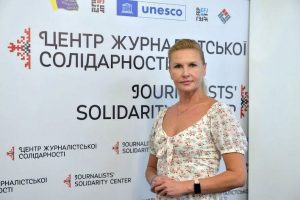 Certified bulletproof vests with the inscription “PRESS” and helmets were received by the JSCs from UNESCO with the assistance of the International Federation of Journalists.
Certified bulletproof vests with the inscription “PRESS” and helmets were received by the JSCs from UNESCO with the assistance of the International Federation of Journalists.
Basic recommendations for the safety of journalists in war zones:
Before going on a business trip to a hot spot, you need to prepare carefully. It is desirable to take pre-medical training courses. The NUJU regularly conducts similar training sessions for journalists. Follow our announcements.
Almost every mission to the front is different from the previous one. But the general rules are as follows:
- During the trip, think over the routes.
- Always wear body armor and a helmet in a combat zone. Keep a first aid kit and tourniquets nearby.
- It is advisable not to move during the dark hours of the day.
- If you come under fire, fall to the ground. Don’t try to run. First, assess the area to find cover. It can be a pit or a wall. Crawl to a safe place. Wait for the shelling to stop and only then leave this area.
- The main thing is not to panic and remember that your safety is important.
Reference information:
The legal hotline for journalists and media works under the auspices of the JSC network of the NUJU with the support of UNESCO and the International and European Federations of Journalists. As part of the program, media workers can get the necessary legal support.
For media workers, the service is free and available from any region or country where media workers are located.
You can apply by filling out a special FORM. It is necessary to indicate contact data, the name of the mass media in which the media person works, the region of residence, briefly outline the content of the appeal, and provide information that will help lawyers understand the essence of the issue and provide assistance.
About NUJU
The National Union of Journalists of Ukraine (NUJU) is the largest journalistic organization in Ukraine, which unites 18,000 members and has regional organizations in each region. With the beginning of Russia’s full-scale war against Ukraine, the NUJU directed its actions to help Ukrainian journalists. In particular, Ukrainian media workers can receive protective equipment for work in the combat zone, as well as financial and psychological assistance.
ABOUT JSC
The Journalists’ Solidarity Centers is an initiative of the NUJU implemented with the support of the International and European Federations of Journalists and UNESCO. The initiative is designated to help media representatives working in Ukraine during the war. The Centers operate in Kyiv, Lviv, Ivano-Frankivsk, Chernivtsi, Zaporizhzhia, and Dnipro and provide journalists with organizational, technical, legal, psychological, and other types of assistance.
ABOUT UNESCO
UNESCO is the United Nations Educational, Scientific, and Cultural Organization. It contributes to peace and security by promoting international cooperation in education, sciences, culture, communication, and information. UNESCO promotes knowledge sharing and the free flow of ideas to accelerate mutual understanding. It is the coordinator of the UN Action Plan on the Safety of Journalists and the Issue of Impunity, which aims to create a free and safe environment for journalists and media workers, thus strengthening peace, democracy, and sustainable development worldwide. UNESCO is working closely with its partner organizations in Ukraine to provide support to journalists on the ground.
The designations employed and the presentation of material throughout this digest do not imply the expression of any opinion whatsoever on the part of UNESCO concerning the legal status of any country, territory, city, or area or its authorities or concerning the delimitation of its frontiers or boundaries.
The authors are responsible for the choice and the presentation of the facts contained in this digest and for the opinions expressed therein, which are not necessarily those of UNESCO and do not commit to the organization.

 THE NATIONAL UNION OF
JOURNALISTS OF UKRAINE
THE NATIONAL UNION OF
JOURNALISTS OF UKRAINE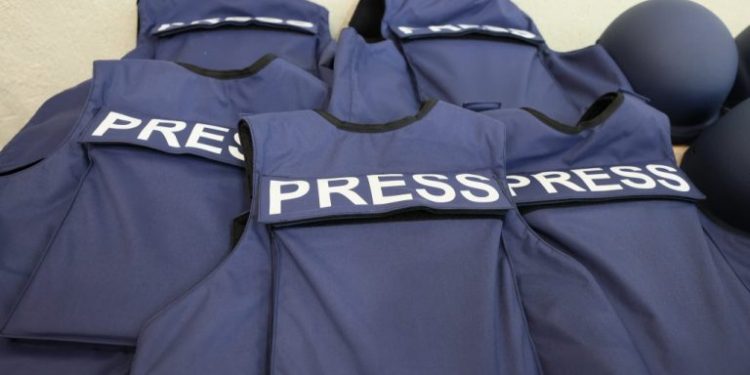
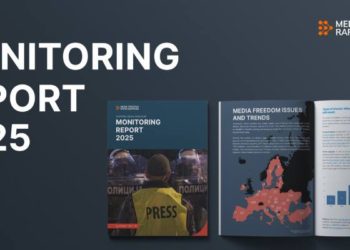
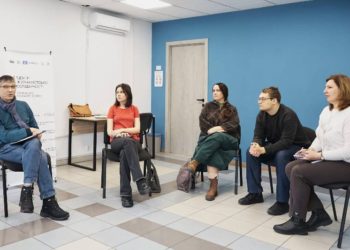
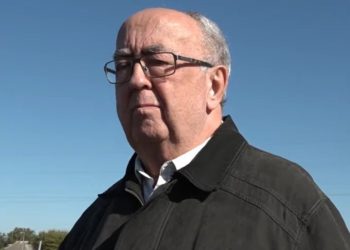













Discussion about this post